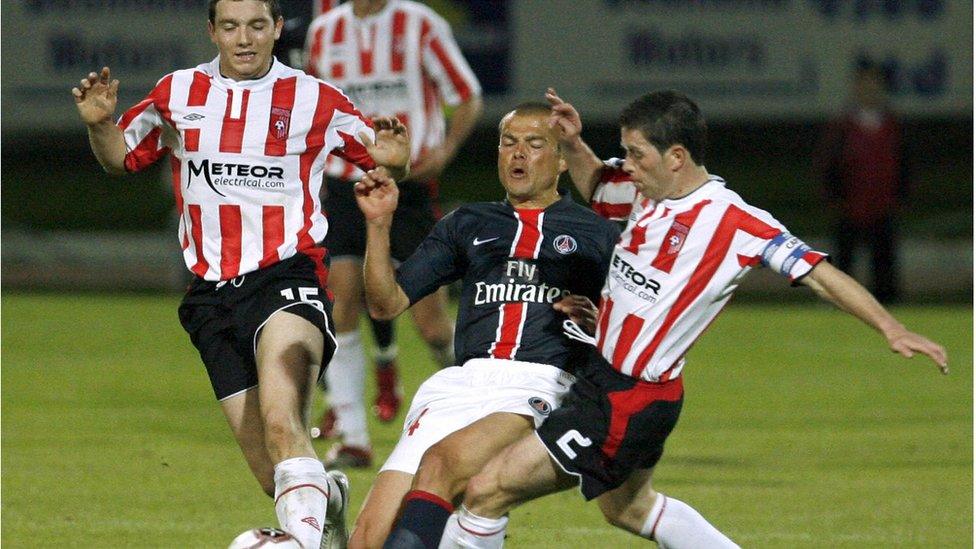Jobby Crossan: Ban out of order, says ex-Man City man
- Published
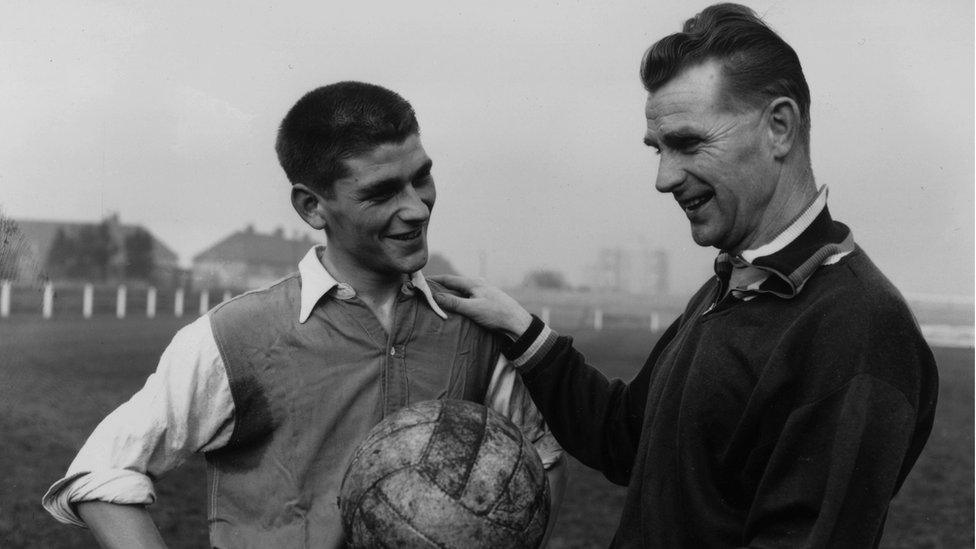
Jobby Crossan (left) - pictured with ex-Northern Ireland manager Peter Doherty - was a star inside forward
"I was described as a wonder boy of Irish soccer."
Looking back on his sparkling career, John "Jobby" Crossan - now in his 80s - has good reason to believe that the early hype around him was justified.
Considered among football fans to be one of Northern Ireland's greatest players, the Londonderry man counts Manchester City and Sunderland among the top clubs he lined out for with distinction.
But it could all have been so different.
He was given a lifetime ban from football in 1959 just when clubs in England were expressing a serious interest in signing him.
It seemed like a young player destined for big things would have to watch his dream disappear.
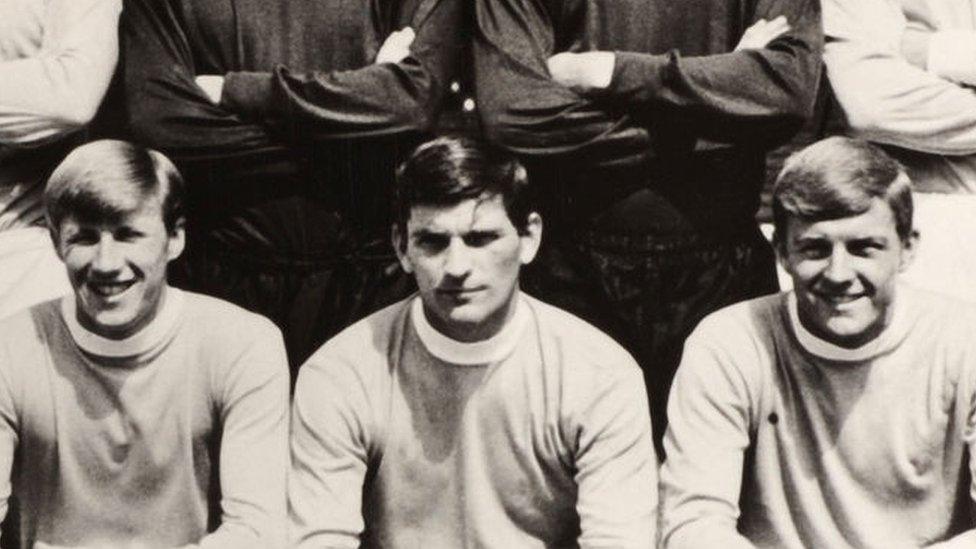
Jobby Crossan (centre) - pictured with Colin Bell (left) and Chris Jones (right) - captained Manchester City
"I loved football from when I was a young boy and still love it to this day," he tells BBC News NI.
"I was banned from playing the sport that I loved and it was totally out of order."
His life ban was imposed after negotiations between him and his club Derry City broke down, with a move to England on the cards.
When Sunderland made an offer of £6,000 for him, Derry City proposed a deal with Crossan.
'Got a raw deal'
Derry City's proposal was that he would sign a professional contract, it would accept Sunderland's offer and Crossan and the club would split the money.
Crossan did not agree, though, and made a counter proposal to Derry City that he would get £5,000 and they would receive £1,000.
But that suggestion was declined, causing a split between the club and the player and leading to the move to Sunderland falling through.
At the end of the season, Crossan left Derry City's Brandywell home to join Coleraine.
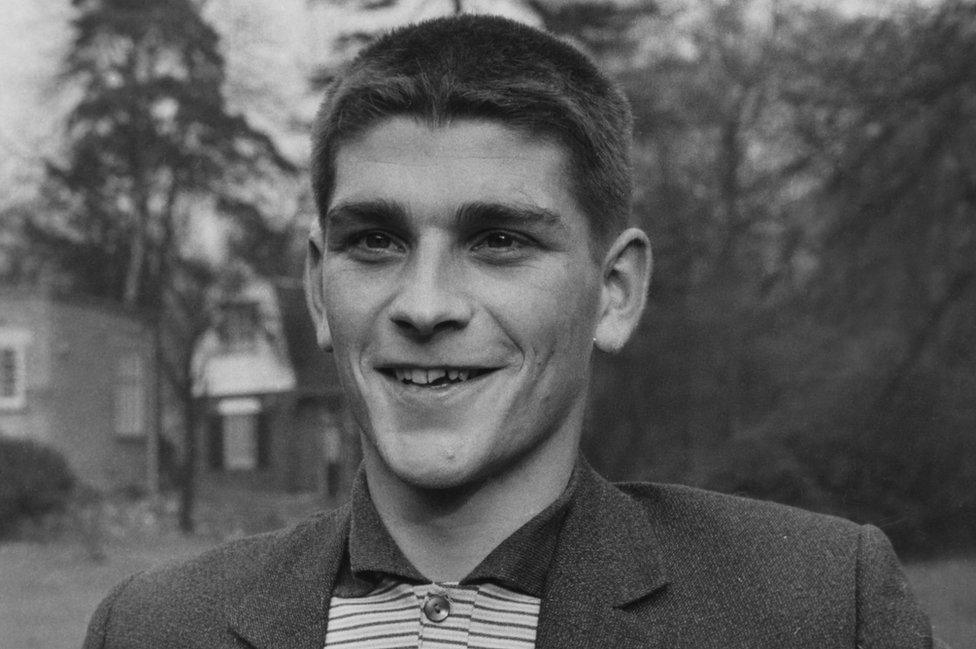
The Derry man played in the Netherlands after his move to England fell through
Derry City later reported itself to the football league authorities for technical breaches of regulations, which also landed Crossan in trouble.
After an investigation, small fines were imposed on Derry City and Coleraine, but the punishment for Crossan was devastating - a lifetime ban from all forms of football.
"That moment stands out to me because I feel like I got a raw deal back then," he says.
"You would probably get jailed for it nowadays, though.
"Yes, a commission was set up but I never ever got as much as a letter to tell me what was going on. It was totally out of order.
"It was hurtful but I always had my eye on the game itself."
'I admired Best'
The ban was later lifted after an appeal, and in May 1959 he signed for the Dutch club, Sparta Rotterdam.
In 1963, Crossan returned to football in the UK and finally signed for Sunderland.
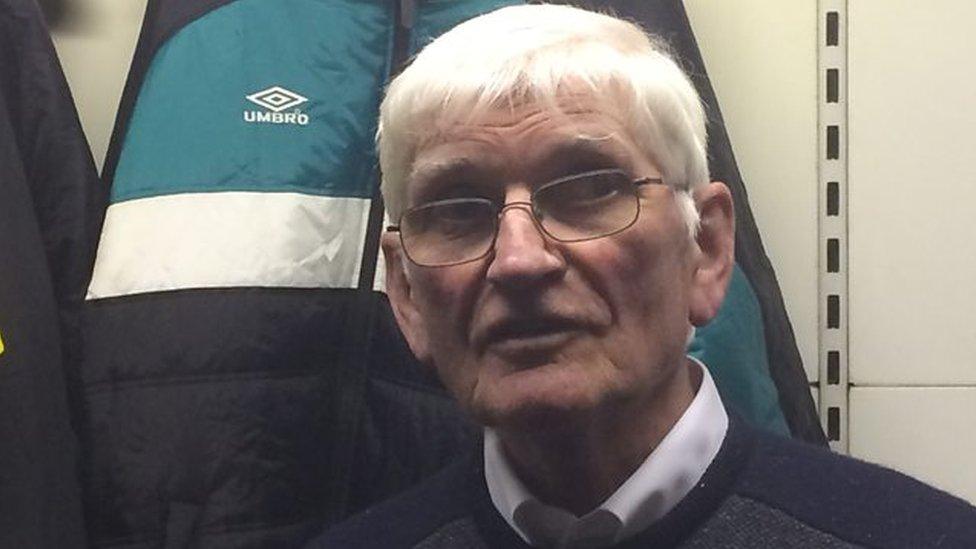
Jobby Crossan owns a sports shop in Derry
He became a Northern Ireland international and one of his most celebrated moments in the game was his hat-trick in a World Cup qualifier at Windsor Park in Belfast in May 1965.
"I remember it like yesterday," he tells BBC Radio Foyle's Mark Patterson Show.
"I still get phone calls today about the hat-trick."
Crossan captained Manchester City during his stint at Maine Road in the 1960s and is still in contact with those at the club.
He was recently invited to a ceremony to honour the club's new record goalscorer, Sergio Aguero.
In spite of his ties to the blue half of Manchester, Crossan speaks fondly of his friendship with Northern Ireland's most famous footballer, whom he describes "as good if not better than Pele".
"We had some greats and Georgie Best had all the ability in the world. I still admire him for it," says Crossan.
"George and I were very friendly. We had no problems considering I played for Man City and he played for Manchester United."
- Published29 April 2019
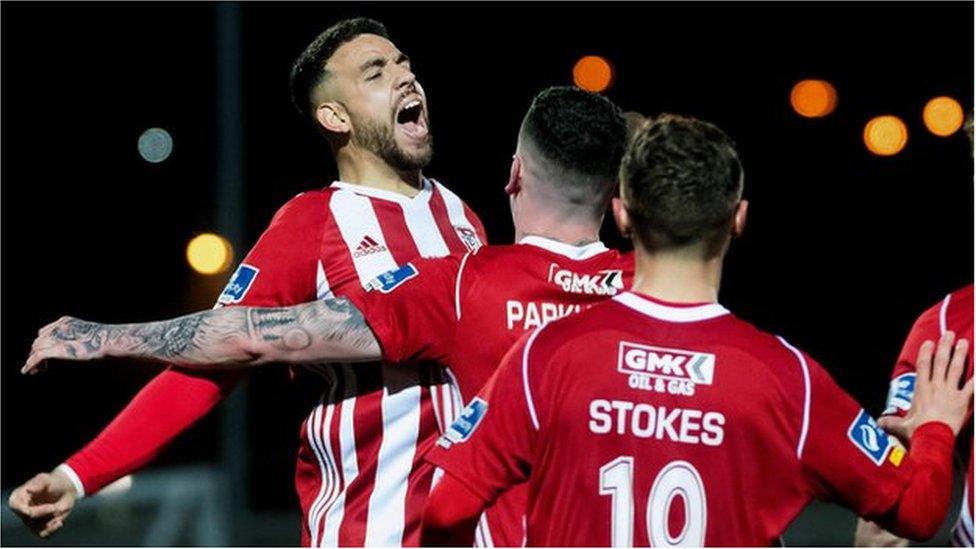
- Published15 February 2019
